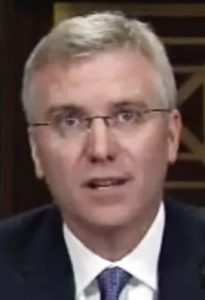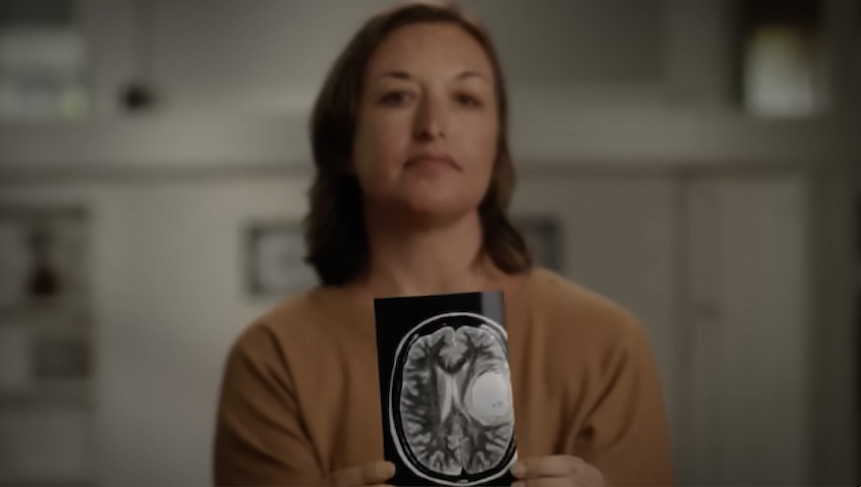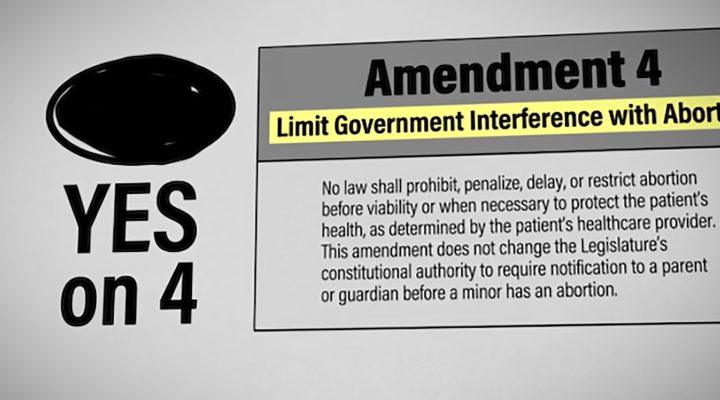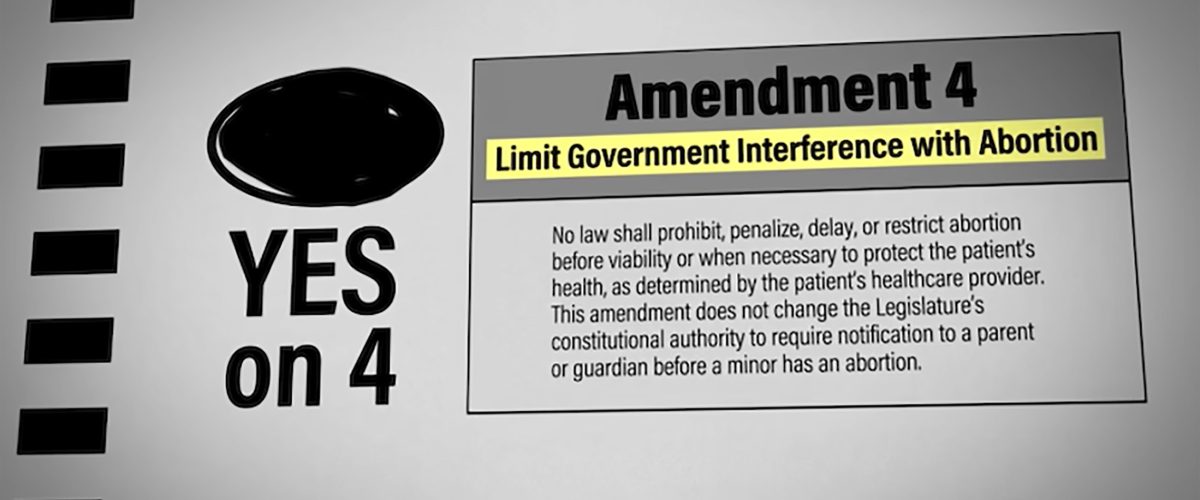A federal judge took Florida Gov. Ron DeSantis to school on the First Amendment in siding with a nonprofit organization’s right to air a TV ad promoting an abortion rights measure on the Nov. 5 ballot.
Chief U.S. District Judge Mark Walker included a scathing rebuke of the state in his Oct. 17 temporary restraining order blocking further threats against television outlets airing the Floridians Protecting Freedom advertisement for Amendment 4. Walker extended the order Oct. 29.

Mark Walker
“Whether it’s a woman’s right to choose, or the right to talk about it, plaintiff’s position is the same — ‘don’t tread on me.’ Under the facts of this case, the First Amendment prohibits the State of Florida from trampling on plaintiff’s free speech,” Walker explained in the order.
The controversy began in early October when the Florida Department of Health sent a letter to TV stations ordering them to cease airing the ad for the Yes on 4 campaign, which seeks to enshrine abortion rights in the state constitution.
The letter said the ad falsely claims physicians in Florida are forbidden under the state’s six-week abortion ban from terminating pregnancies when the lives of mothers are at stake.
The letter then described the complicated and unclear rules governing when doctors may perform procedures in such cases, including a requirement that two physicians certify the need for an emergency abortion in writing, and that they must remain “diligent to preserve the life and health of a fetus” throughout the process.
“The advertisement is not only false, it is dangerous,” the state declared, because it may influence women to “travel out of state to seek emergency medical care, seek emergency medical care from unlicensed providers in Florida, or not seek emergency medical care at all.”
The stations’ First Amendment right to broadcast political advertisements does not apply in this situation because sharing incorrect information makes the offense one of a “sanitary nuisance” not protected by the U.S. Constitution, the state claimed. The letter concludes with a threat of criminal prosecution.
The advertisement features a mother with terminal brain cancer explaining the life-extending abortion she received is no longer legal in Florida and would have left her first child motherless.
“The state’s attempts to silence me are not only disheartening, they sting and are an abuse of power,” said Caroline, the Tampa woman featured in the ad. “The choice and ability to have an abortion when I was diagnosed with terminal brain cancer extended my life so I could spend more time with my young daughter and husband. Now, because of Florida’s abortion ban, women like me are unable to make medical decisions with their families and doctors. That’s cruel and unacceptable.”

Caroline from the advertisement holding an MRI.
The Yes on 4 lawsuit was filed against Florida Surgeon General Joseph Ladapo and John Wilson, the health department’s lead attorney at the time the letters were sent. The action seeks protection of the free-speech rights of the campaign and media outlets, and punitive damages and attorney’s fees.
“The state of Florida’s crusade against Amendment 4 is unconstitutional government interference — full stop,” Yes on 4 Campaign Director Lauren Brenzel said. “The State cannot coerce television stations into removing political speech from the airwaves in an attempt to keep their abortion ban in place.”
The threatening letter sent to TV stations was just the latest tactic in the state’s overtly political opposition to Amendment 4. In July, a state committee added a lengthy statement to the ballot language designed to discourage yes votes. The language included a contested claim that abortions will exceed births in the state if the measure is approved.
“They’re trying to cause confusion and hide the real issue: Amendment 4 is about ending Florida’s extreme abortion ban which outlaws abortion before many women even realize they are pregnant,” said Amy Baker, chair of the Florida Financial Impact Estimating Committee.
DeSantis dispatched state police to the homes of voters who signed petitions to place the amendment on the November ballot.
In September, DeSantis dispatched state police to the homes of voters who signed petitions to place the amendment on the November ballot. The Florida Agency for Health Care Administration later claimed the measure endangers women’s health.
“Ron (DeSantis) has repeatedly used state power to interfere with a citizen-led process to get reproductive freedom on the ballot,” Florida Democratic Party Chair Nikki Fried said in a report by NBC 6 in Miami. “This is their latest desperate attempt before Election Day.”
But Judge Walker declared there would be no state interference with the constitutional rights of citizens or media outlets in Florida: “The government cannot excuse its indirect censorship of political speech simply declaring the disfavored speech is ‘false.’”
Walker reminded Ladapo that he and other Florida officials have a First Amendment right to speak against the amendment. But, he added, “it would subvert the rule of law to permit the state to transform its own advocacy into the direct suppression of protected political speech.”
Based on the Constitution’s enshrinement of free-speech rights, the nation’s founders clearly did not trust government’s ability to distinguish between true and false on the behalf of its citizens, Walker added. “To keep it simple for the State of Florida: It’s the First Amendment, stupid.”
Related articles:
Anti-abortion forces seek to complicate fall vote on constitutional amendment in Florida
Florida high court gives hope to both sides in abortion debate
GOP abortion laws are wildly out of step with many evangelicals’ convictions | Analysis by David Bumgardner


